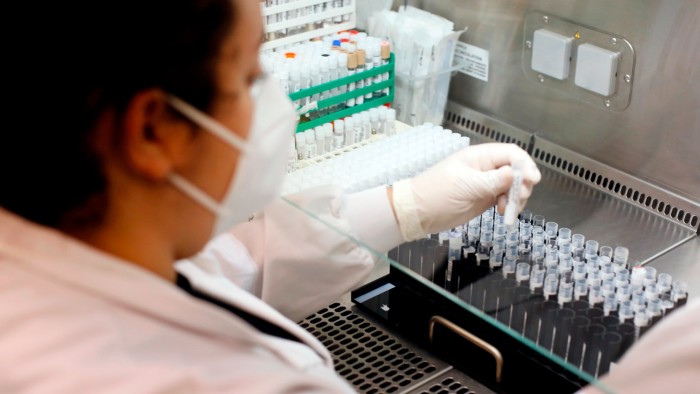Hedge funds are circling more than a dozen distressed companies in France, as a string of economic shocks pushes growing numbers of businesses in the country towards painful restructurings.
Restructuring advisers and distressed debt investors said they were monitoring struggling mid- and large-cap French companies, often owned by private equity groups.
One of EQT’s portfolio companies, care home provider Colisee, is restructuring its debt, while another, lab operator Cerba, is at risk of doing so, people familiar with the cases said.
Other indebted private equity-owned companies at risk of needing to restructure include Partners Group’s real estate services business Emeria and Apollo’s payments operator Ingenico.
“Between 15 and 20 [French] names are being monitored” due to “leverage or liquidity issues”, one restructuring banker said, adding that the vast majority were owned by private equity.
Businesses across Europe are struggling with high levels of debt and a shortage of cash to pay rising interest rates when they refinance.
But the situation is particularly acute in France, where there is a relatively high number of businesses with large debt piles in sectors vulnerable to downturns in consumer spending such as retail and telecoms.
The country is also facing a “catch-up effect”, the Bank of France has said, in which businesses that were kept afloat by generous state-backed support during the pandemic are beginning to fail.
“In Paris, not a week goes by without a UK or US debt fund coming to see us,” said Olivier Sibenaler, a restructuring expert at consultancy AlixPartners. “It has really got going since the start of the year.”
Emeria, Ingenico, Colisee, EQT and Partners Group declined to comment. Cerba did not respond to a request for comment.
The debt troubles are a reflection of challenges across the French economy. According to the Bank of France, business bankruptcies in France are at their highest level since records began in 1991.

The number of leveraged buyouts — when private equity groups acquire companies using large amounts of debt — is also much higher in France than elsewhere in Europe.
There have been 4,675 LBOs in France since 2015, compared with 2,786 in Germany and 1,749 in Italy, according to analysis by HEC professor Oliver Gottschalg.
Businesses had faced a “multiplication of shocks”, said Céline Domenget-Morin, a restructuring lawyer in Paris at Weil, Gotshal & Manges, referring to events including the pandemic and the war in Ukraine. “You get through a first [shock] and a second and then, when a third comes, you can no longer take it.”
Regulatory changes implemented in 2021 have also affected how restructurings play out. France adopted European insolvency legislation that significantly weakened the hand of shareholders compared with previous legislation.
The process leads to more antagonistic settlements between creditors, where some lenders can now force others into restructuring deals.
The changes had provided a “tool” that made France a more attractive location for some international credit investors, said Sibenaler.
Hedge funds investing in distressed debt, often based in the US and UK, can acquire stakes in distressed companies by converting their debt to equity through the restructuring process.
“We’re keeping a close eye on France,” said one investor at a European credit hedge fund. “There’s a lot to do there.”
France has had a string of high-profile restructurings in recent years, including retailer Casino, care home provider Orpea and telecoms company Altice.

Creditors to Patrick Drahi’s Altice USA are readying themselves for another round of restructuring, while Casino’s debt has sunk to deeply distressed levels just over a year after its €5bn restructuring.
After these large restructurings for listed businesses, many companies owned by private equity groups are now increasingly vulnerable.
Bloomberg data shows that some traditional high-yield credit investors have dumped Colisee’s debt. “It will be distressed hedge funds on the other side of those transactions,” one high-yield bond investor said.
The debt of medical laboratory group Cerba is also trading at distressed levels following worsening performance. Cerba’s secured bonds are trading at 76 cents on the euro, while its unsecured debt is trading at about 22 cents on the euro, as lenders expecting heavy losses have sold out.
Additional reporting by Alexandra Heal



